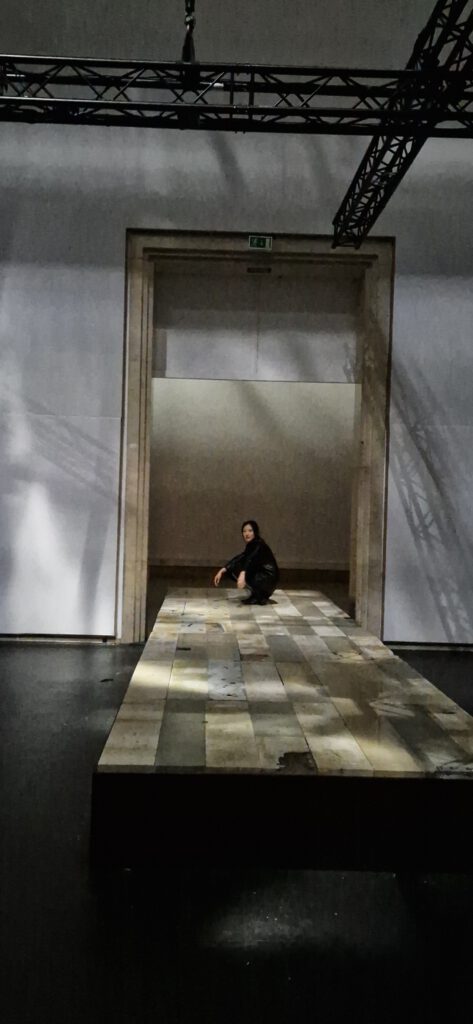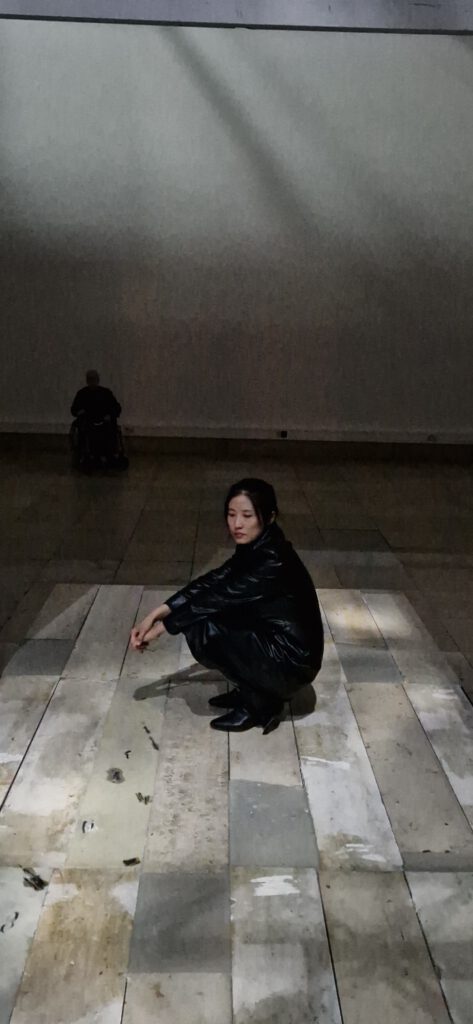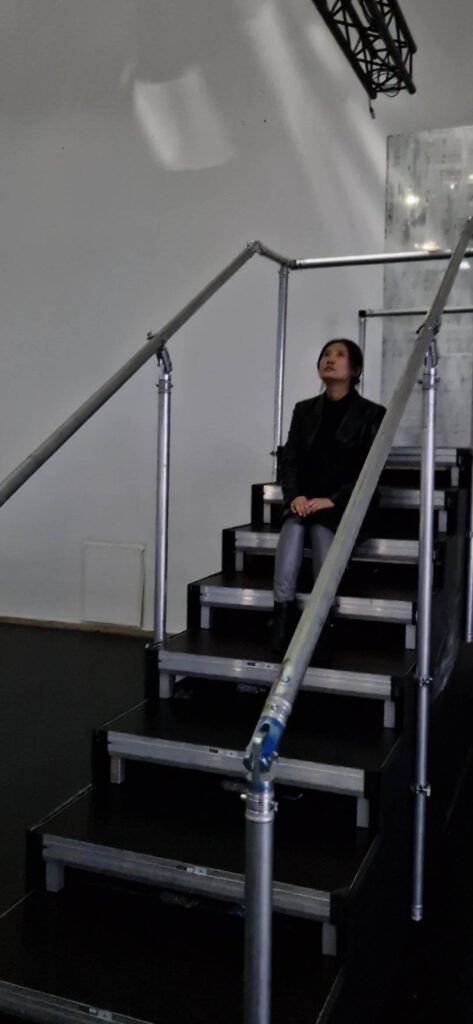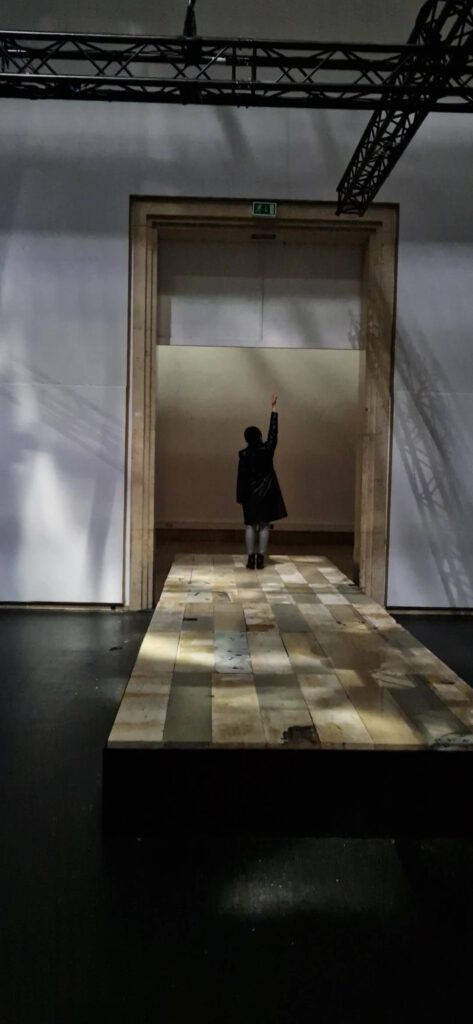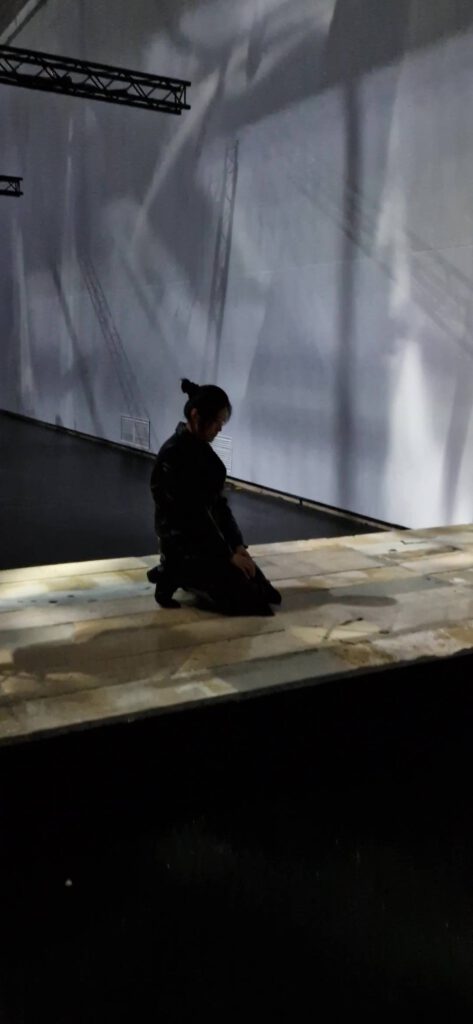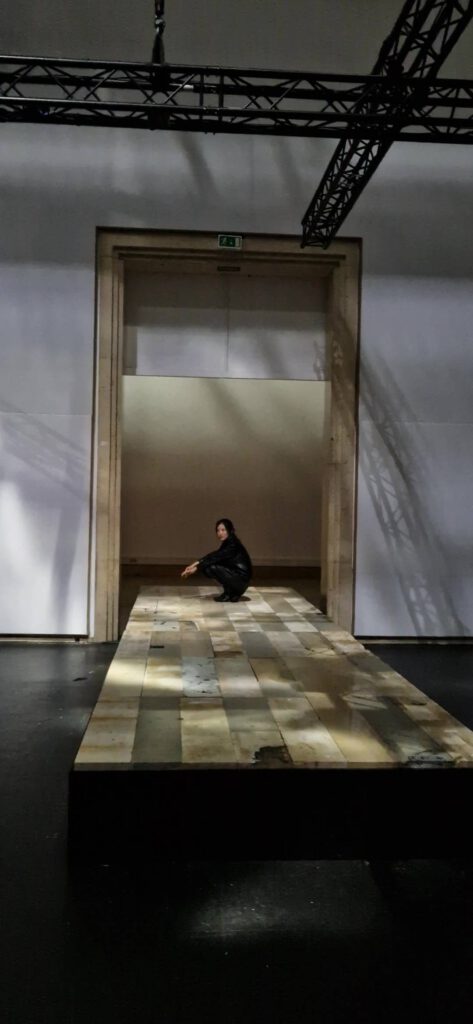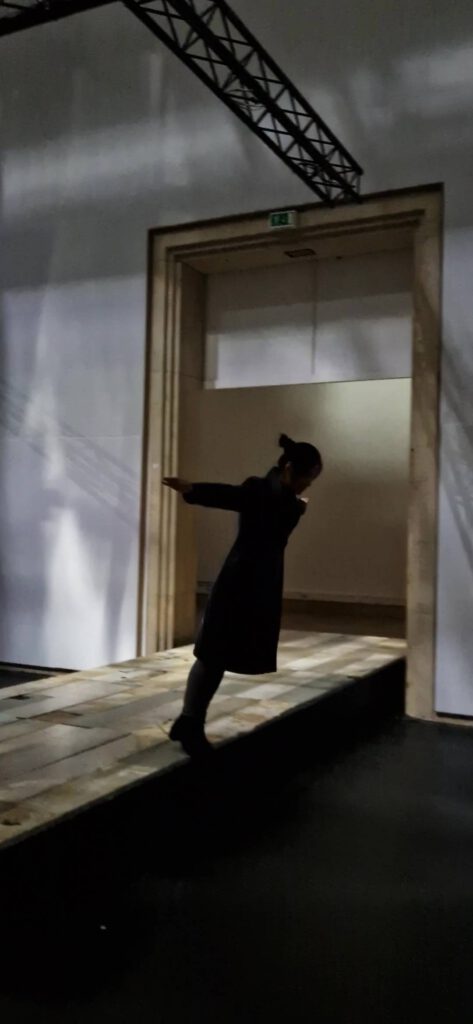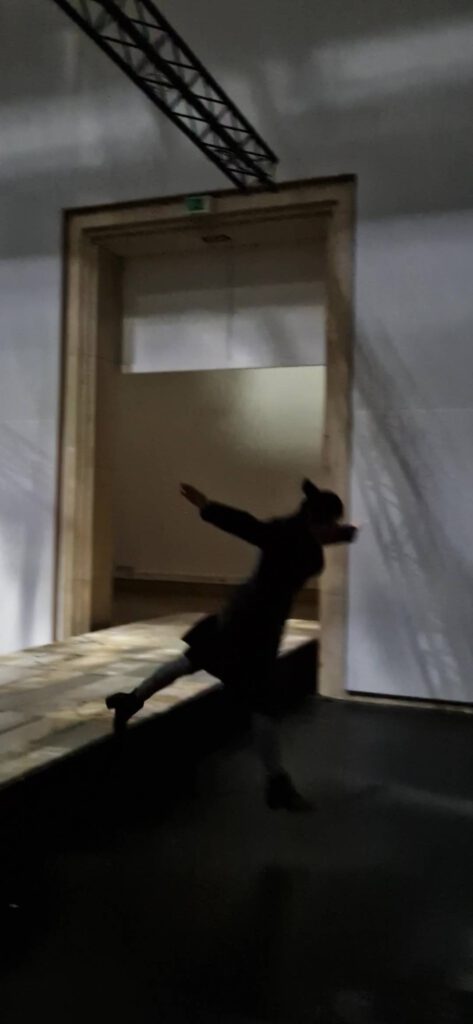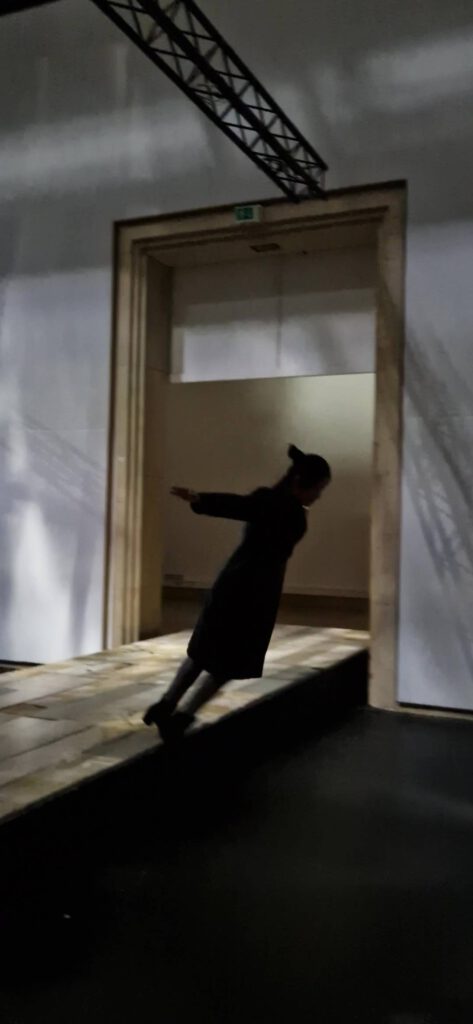In the exhibition at Haus der Kunst in Munich, the artist created a large room installation and provided opportunities for the audience to interact within the art space. This included their own room installation and performance. In March 2024, Yan Cheng had the chance to express her own feelings and thoughts as audience in this space. Many thanks to the artist: Pan Daijing.
Performance artists and philosophers are trained in making up possible worlds, criticize these same parallel universes, and calling into question everything we once held for sure. In short, they are able to change our perspectives on the world, and more importantly, question our own position in society
In creative contexts, in particular participatory performances, the audience is claiming its own important part. Spectators are mobilized in creating their own stories. As such, they take up active roles in creating the content of performances. The turn to active participation in art manifests itself throughout Western European history. The historic avant-garde in Europe in 1917, the so-called ‘neo’ avant-garde leading to 1968, and the fall of communism in 1989 all reconsidered the role of participating in art in a changing society . In short, the periods in which change and reflection on the state of the art of society took place are characterized by a dramatic shift in our world order. Currently, we face developments making a call on our moral responsibility as human beings.
Rancière’s theories on the emancipated spectator and the distribution of the sensible offer a radically different perspective on the state of contemporary democracy than we are used to. These concepts could be taking notions on participating in society and in aesthetic events, and the responsibility of philosophers, performance artists and audiences to a next level. Rancière uses theatrical terms to describe democratic politics. In Rancière’s view democracy means that all people have a right to be heard, yet a struggle is needed to challenge the division between ‘actors’ and the ‘audience’. Our conception of spectating has to alter, because ‘the specator also acts’. Democratic politics occur when the emancipated spectator questions this separation of roles and the division between the people acting and the people standing by becomes unclear. Consequently, the theatrical terms used to describe contemporary democratic politics seem to challenge a classical theatre structure: the separation of roles between actors and spectators is debated. This struggle for democratic politics is visible in the theatre, especially in participatory performances. Theatre makers and audience members participating in the theatre together create a space for critical reflection. Seen in this way, theatre as both aesthetic act and event in the everyday life could fulfill an important role in a democratic society.
